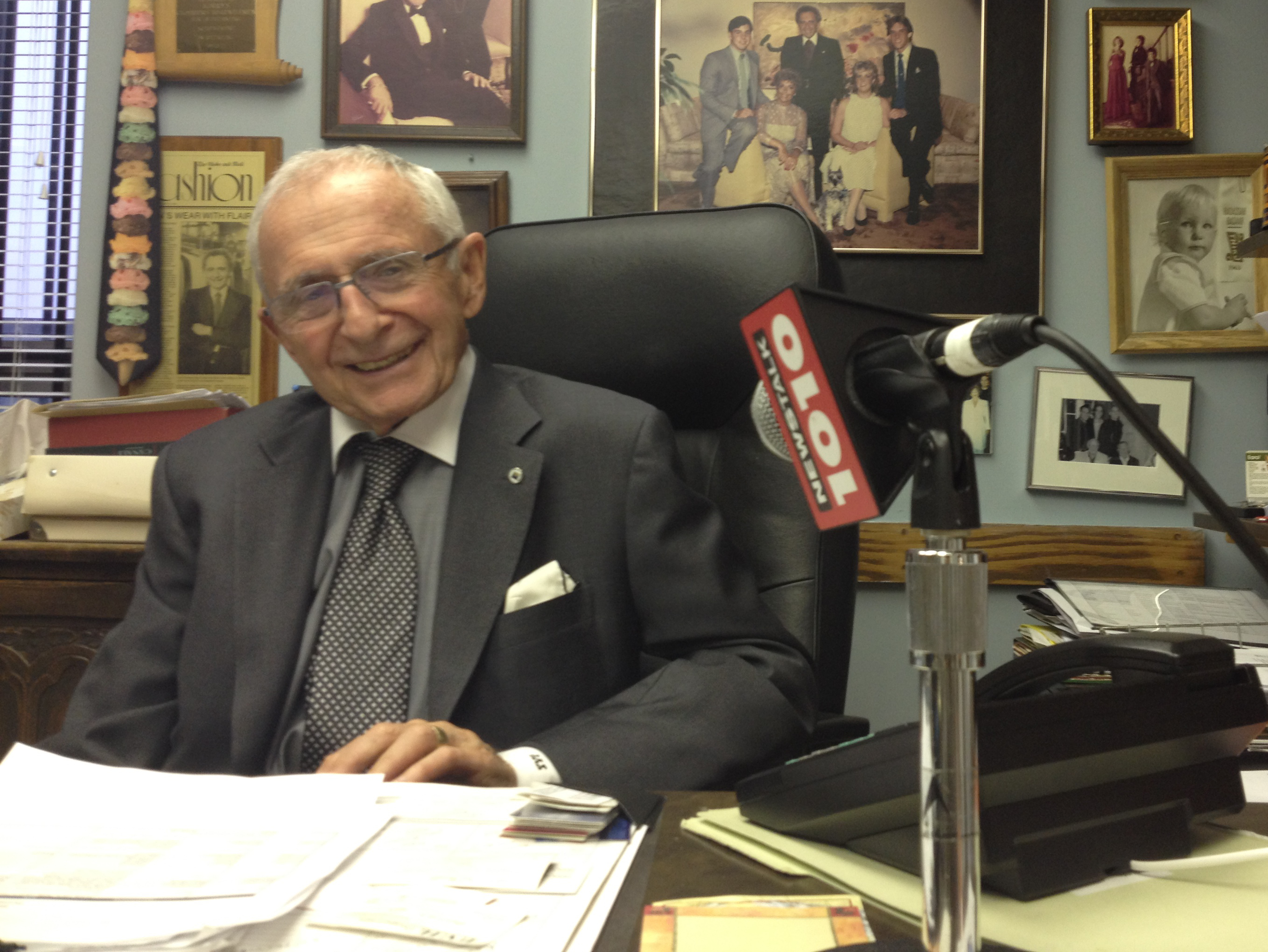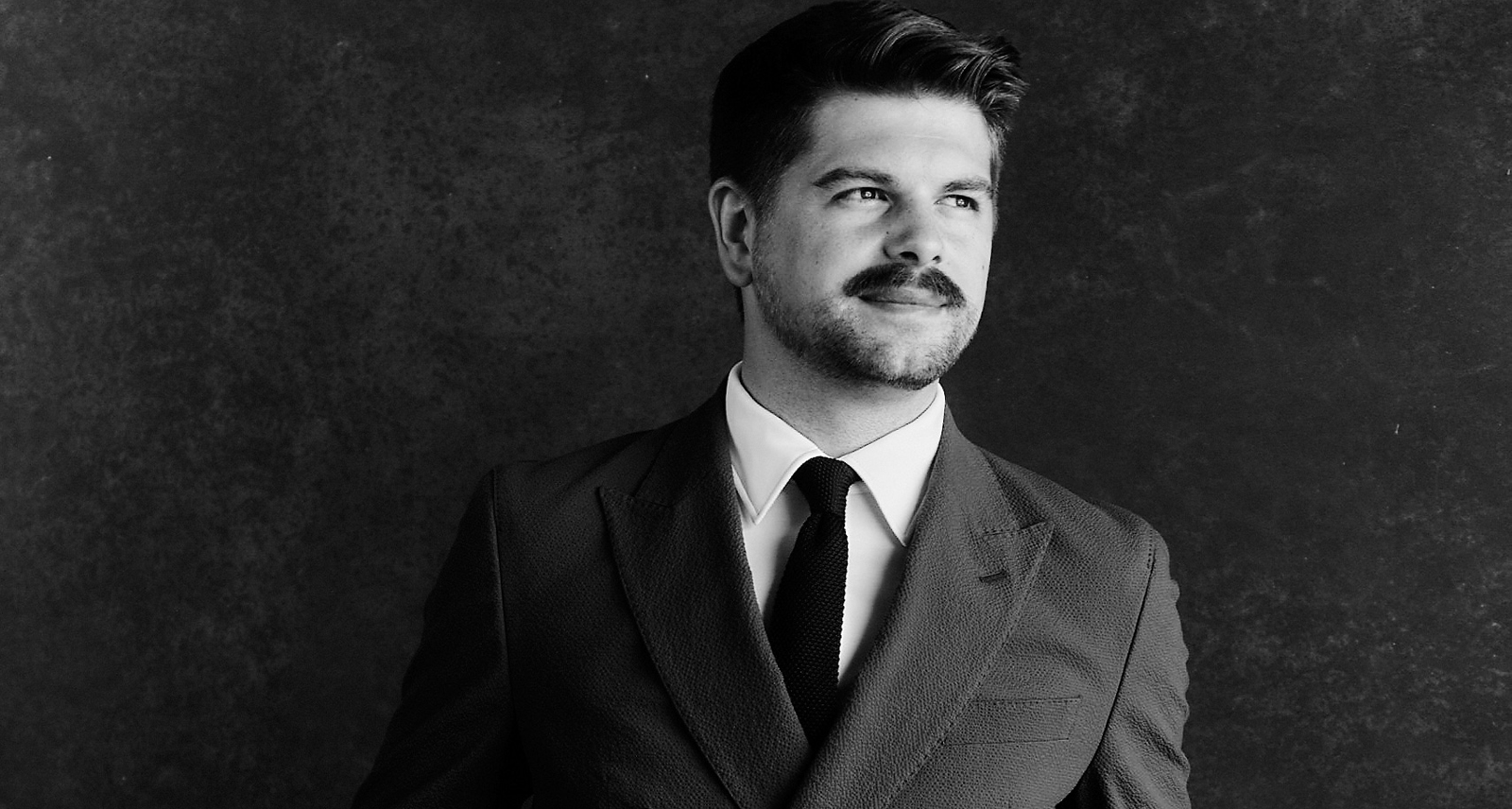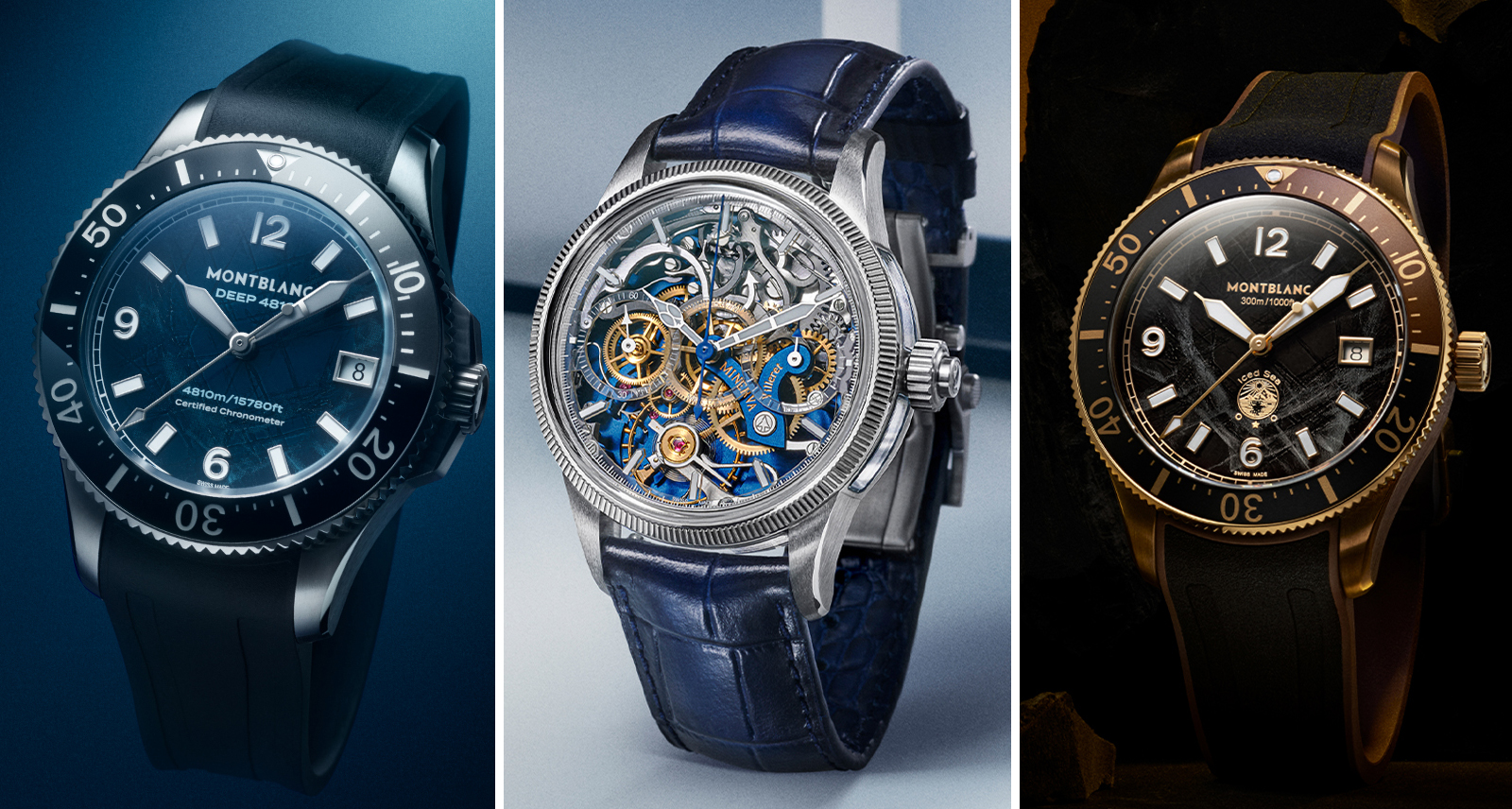Heroes of Menswear: Saul Korman
If you’re going to visit Saul Korman at his menswear shop, Korry’s Clothiers on Danforth Avenue in Toronto, wear a suit.
It’s 25 minutes into my interview with the Canadian menswear legend and I find myself looking at my shoes. He’s just said something to the effect of “it doesn’t matter what a man is wearing if his shoes are dirty.” He’s not looking down, but I am. My boots, a pair of fur-lined leather lace-ups, are, in my defense, appropriate for the slushy winter weather, which has left a pattern of salty spots on the dark leather. Korman is wearing a 5-year-old, dark grey Canali suit with the pants cuffed, which he says he wore specially for me, though I’m not entirely sure why. I know he’s not judging me, but I can’t help but wish I had more carefully considered my outfit.
He’s sitting at his desk in his office. All the walls are covered from floor to ceiling with photos of former clients. “Bill Cosby used to be up there,” he says. “We took him down though.”
If you don’t know Korman, you’re probably not from Toronto. He’s become synonymous with menswear in the city over his 60+ years in the business, simply by being his charming, chatty, super-social self.
And he’s fed that reputation with over 40 years of free-style radio ads on CFRB, The Fan 590, AM 640, Q-107 and 102.1 CFNY. Which he does himself. Every day. Live. From his desk.
This year, when he was honoured with a Business Excellence Award (the latest of many distinctions throughout his career), he graciously accepted it with a 20-minute speech, none of which is boring in the slightest. And this is why people love, have loved and will always love shopping with Saul. The man can tell a story. And he knows his suits.
So, I reiterate: if you’re going to see Saul Korman, wear a suit. Unless you mean to buy one. He won’t judge you, but trust me, you’ll want to wear one anyway.
* * * *
Sharp: So this is it? This is home? This is work?
Korman: Yes, we moved to this location in 1972. We’ve been on the street for 62 years. The first location was at Coxwell and Danforth, the next at Pape and Danforth.
Sharp: You won an award this year?
Korman: A big one! (Shuffles through papers on his desk.) You should watch the speech that’s online. I’ve had a few awards. The one that I remember the best is the lifetime achievement award from the menswear industry in New York.
Sharp: Who do we have on the walls here?
Korman: Customers. Mostly personalities. A little bit of history.
Sharp: You’ve obviously seen trends in menswear come and go and perhaps come again…
Korman: It’s a cycle. Are we going to come back to pleated pants? I think so, because the young man has never seen them and looks at them and says, “wow, that’s great!” The old man is finally getting into flat-fronts. It took him ten years to get there! And now he’s going to say, “what, we’re going back to that? Why?” It’s a wheel.
Sharp: I feel like we’ve gone slender, and now we’re starting to widen out again.
Korman: I don’t like a narrow cut anymore. I want to go wider and I also want a wider tie. I don’t like the skinny ties. I used to like it, but now I’m ready to go back to the wide ones. What I’m seeing a lot of is men wearing suits that are too slim. I’m scared that if they sit down they’re going to split their pants.
Sharp: You began your career as a theatre manager. At that time, were you a stylish fellow?
Korman: I always dressed well. I wouldn’t have called me a stylish fellow, but I always like fashion. I wore alligator shoes when I was 18. See, I come from a small town in Quebec where people dress better than they do in Toronto. On Saturday nights you had to dress up or you wouldn’t be able to get a date.
Sharp: And is it the same today?
Korman: (laughs.) I haven’t been in 62 years, so I have no idea. I hope so. Quebec has its own style—they dress well.
Sharp: What was it like working with your father compared to working with your sons?
Korman: Well, my father actually worked for me. He told me to take over his old store, so I did. And he came to work for me. But if you walked in, I’d tell you he was the boss. But, in truth, he worked for me.
Sharp: And how about your boys? How do they take the orders?
Korman: I’ve got to give them the ropes, but it’s tough for me to give up. I do ok.
Sharp: Any plans to retire?
Korman: I have to have someplace to go, so I come here every day. I leave early, but I’m still involved. They’re doing more, my boys, and I let them make their mistakes. Once I told them, “you’re doing a good job…I’m teaching you well,” and he said, “don’t tell me that!” But I haven’t given over the reins completely; people who come through the door still want to meet Saul.
Sharp: And why do people want to shop with Saul?
Korman: People want a relationship. One lesson I’ve learned is to always let the customer win. They like that. We’re small enough, and we’ve created a mystique on the radio, so if we look after people the first time they come in, they’re going to come back. All the menswear providers are basically doing the same thing, but it’s about who looks after their customers the best.










